
Alice O'Connor, better known by her pen name Ayn Rand, was a Russian-born American author and philosopher. She is known for her fiction and for developing a philosophical system she named Objectivism. Born and educated in Russia, she moved to the United States in 1926. After two early novels that were initially unsuccessful and two Broadway plays, Rand achieved fame with her 1943 novel The Fountainhead. In 1957, she published her best-selling work, the novel Atlas Shrugged. Afterward, until her death in 1982, she turned to non-fiction to promote her philosophy, publishing her own periodicals and releasing several collections of essays.
Objectivism is a philosophical system named and developed by Russian-American writer and philosopher Ayn Rand. She described it as "the concept of man as a heroic being, with his own happiness as the moral purpose of his life, with productive achievement as his noblest activity, and reason as his only absolute".

Nathaniel Branden was a Canadian–American psychotherapist and writer known for his work in the psychology of self-esteem. A former associate and romantic partner of Ayn Rand, Branden also played a prominent role in the 1960s in promoting Rand's philosophy, Objectivism. Rand and Branden split acrimoniously in 1968, after which Branden focused on developing his own psychological theories and modes of therapy.
This is a bibliography for Ayn Rand and Objectivism. Objectivism is a philosophical system initially developed in the 20th century by Rand.
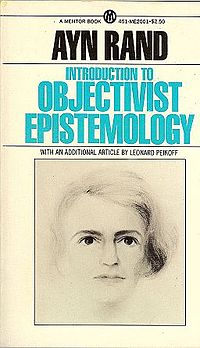
Introduction to Objectivist Epistemology is a book about epistemology by the philosopher Ayn Rand. Rand considered it her most important philosophical writing. First published in installments in Rand's journal, The Objectivist, July 1966 through February 1967, the work presents Rand's proposed solution to the historic problem of universals, describes how the theory can be extended to complex cases, and outlines how it applies to other issues in the theory of knowledge.
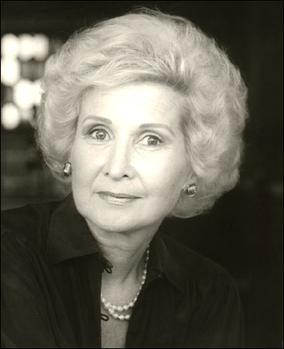
Barbara Joan Branden was a Canadian-American writer, editor, and lecturer, known for her relationship and subsequent break with novelist-philosopher Ayn Rand.

Chris Matthew Sciabarra is an American political theorist born and based in Brooklyn, New York. He is the author of three scholarly books—Marx, Hayek, and Utopia; Ayn Rand: The Russian Radical; and Total Freedom: Toward a Dialectical Libertarianism—as well as several shorter works. He is also the co-editor, with Mimi Reisel Gladstein, of Feminist Interpretations of Ayn Rand and co-editor with Roger E. Bissell and Edward W. Younkins of The Dialectics of Liberty: Exploring the Context of Human Freedom. His work has focused on topics including Objectivism, libertarianism, and dialectics.
The Nathaniel Branden Institute (NBI), originally Nathaniel Branden Lectures, was an organization founded by Nathaniel Branden in 1958 to promote Ayn Rand's philosophy of Objectivism. The institute was responsible for many Objectivist lectures and presentations across the United States. Many of those associated with NBI worked on the Objectivist magazines, The Objectivist Newsletter and The Objectivist.

The Romantic Manifesto: A Philosophy of Literature is a collection of essays regarding the nature of art by the philosopher Ayn Rand. It was first published in 1969, with a second, revised edition published in 1975. Most of the essays are reprinted from Rand's magazine The Objectivist.
The Objectivist movement is a movement of individuals who seek to study and advance Objectivism, the philosophy expounded by novelist-philosopher Ayn Rand. The movement began informally in the 1950s and consisted of students who were brought together by their mutual interest in Rand's novel, The Fountainhead. The group, ironically named "The Collective" due to their actual advocacy of individualism, in part consisted of Leonard Peikoff, Nathaniel Branden, Barbara Branden, Alan Greenspan, and Allan Blumenthal. Nathaniel Branden, a young Canadian student who had been greatly inspired by The Fountainhead, became a close confidant and encouraged Rand to expand her philosophy into a formal movement. From this informal beginning in Rand's living room, the movement expanded into a collection of think tanks, academic organizations, and periodicals.
The Randian hero is a ubiquitous figure in the fiction of 20th-century novelist and philosopher Ayn Rand, most famously in the figures of The Fountainhead's Howard Roark and Atlas Shrugged's John Galt. Rand's self-declared purpose in writing fiction was to project an "ideal man"—a man who perseveres to achieve his values, and only his values.
Patrecia Scott was a Canadian-born model as well as television and stage actress who was married to Nathaniel Branden from 1969 until her death in 1977.

The Virtue of Selfishness: A New Concept of Egoism is a 1964 collection of essays by the philosopher Ayn Rand and the writer Nathaniel Branden. Most of the essays originally appeared in The Objectivist Newsletter. The book covers ethical issues from the perspective of Rand's Objectivist philosophy. Some of its themes include the identification and validation of egoism as a rational code of ethics, the destructiveness of altruism, and the nature of a proper government.
Objectivist periodicals are a variety of academic journals, magazines, and newsletters with an editorial perspective explicitly based on Ayn Rand's philosophy of Objectivism. Several early Objectivist periodicals were edited by Rand. She later endorsed two periodicals edited by associates, and a number of others have been founded since her death.
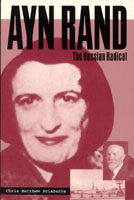
Ayn Rand: The Russian Radical is a 1995 book by Chris Matthew Sciabarra tracing the intellectual roots of 20th-century Russian-American novelist and philosopher Ayn Rand and the philosophy she developed, Objectivism.
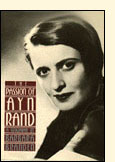
The Passion of Ayn Rand is a biography of Ayn Rand by writer and lecturer Barbara Branden, a former friend and business associate. Published by Doubleday in 1986, it was the first full-length biography of Rand and the basis for the 1999 film of the same name starring Helen Mirren as Rand.
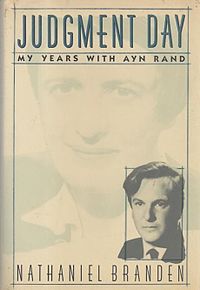
Judgment Day: My Years with Ayn Rand is a 1989 memoir by psychologist Nathaniel Branden that focuses on his relationship with his former mentor and lover, Ayn Rand. Branden released a revised version, retitled as My Years with Ayn Rand, in 1999.

The Psychology of Self-Esteem is a book by Nathaniel Branden, first published in 1969. It explains Branden's theories of human psychology, focusing on the role of self-esteem. Most of the book was written during Branden's association with Ayn Rand, and it reflects some of her philosophical ideas. The book's success helped to popularize the idea of self-esteem as an important element of self-improvement.

Who Is Ayn Rand? is a 1962 book about the philosopher Ayn Rand by Nathaniel Branden and Barbara Branden. It comprises four essays addressing Rand's life and writings and her philosophy of Objectivism. The book's title essay is Barbara Branden's authorized biography of Rand. The Brandens subsequently repudiated the book, deeming its approach too uncritical toward Rand.
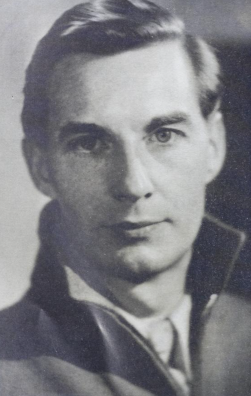
Charles Francis "Frank" O'Connor was an American actor, painter, and rancher and the husband of novelist Ayn Rand. Frank O'Connor performed in several films, typically as an extra, during the silent and early sound eras until about 1934. While working on the set of the 1927 film The King of Kings, O'Connor met Rand, and they eventually dated each other steadily. They married in 1929. When O'Connor and Rand moved to California so Rand could work on the movie adaptation of her novel The Fountainhead, O'Connor purchased and managed a ranch in the San Fernando Valley for several years. In addition to raising numerous flora and fauna on the ranch, he there developed the Lipstick and Halloween hybrids of Delphinium and Gladiolus.













